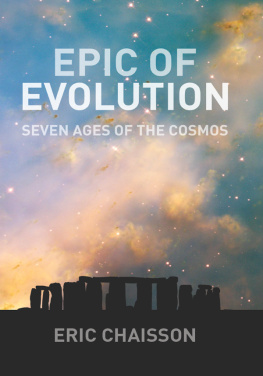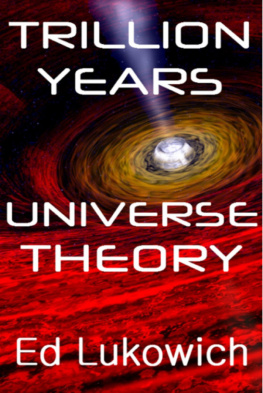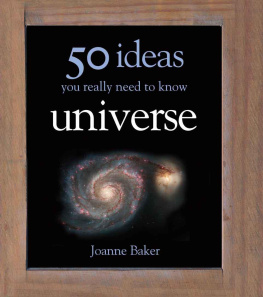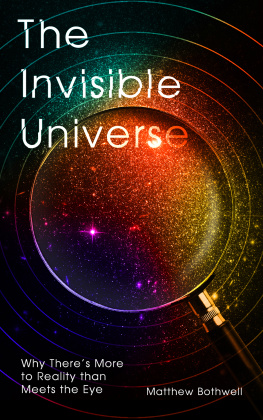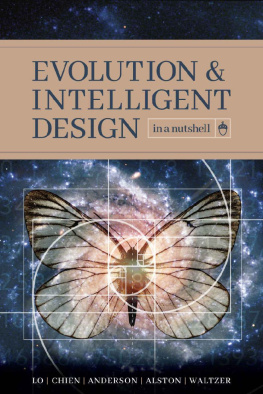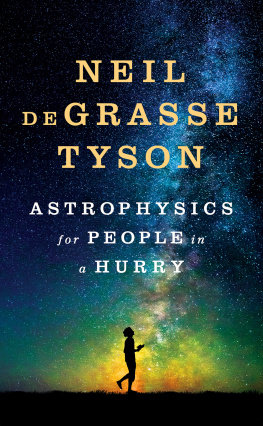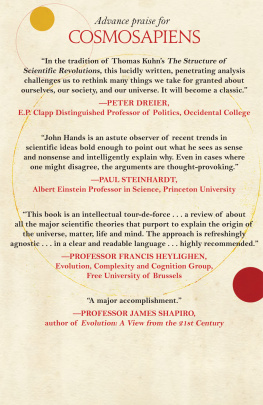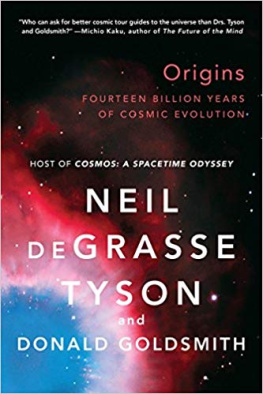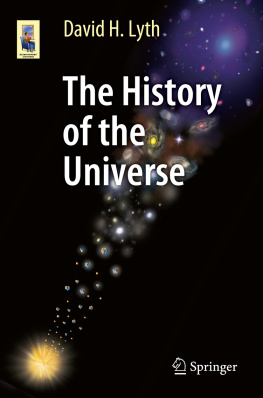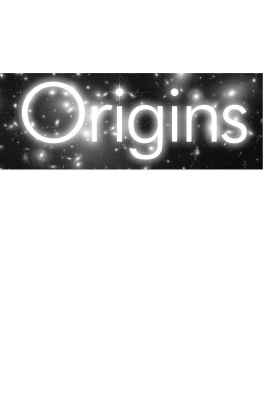Library of Congress Cataloging-in-Publication Data Chaisson, Eric.
Epic of evolution : seven ages of the cosmos / Eric Chaisson ; illustrated by Lola Judith Chaisson.
p. cm.
Includes bibliographical references and index.
ISBN 0231135602 (cloth : alk. paper)
1. Cosmology. 2. LifeOrigin. 3. MatterConstitution. I. Title.
A Columbia University Press E-book.
CUP would be pleased to hear about your reading experience with this e-book at .
Everything flows and nothing stays.
Heraclitus, a Greek philosopher of twenty-five centuries ago
WHEN CONSCIOUSNESS DAWNED among the ancestors of our civilization, men and women perceived two things. They noted themselves, and they noted their environment. They wondered who they were and whence they came. They longed for an understanding of the starry points of light in the nighttime sky, of the surrounding plants and animals, of the air, land, and sea. They contemplated their origin and their destiny.
Thousands of years ago, all these basic queries were treated as secondary, for the primary concern seemed well in hand: Earth was presumed to be the stable hub of the Universe. After all, the Sun, Moon, and stars all appear to revolve around our planet. It was natural to conclude, not knowing otherwise, that home and selves were special. This centrality led to a feeling of security or at least contentmenta belief that the origin, maintenance, and fate of the Universe were governed by something more than natural, something supernatural.
The ancients thought deeply and well, but not much more. Logic was paramount; empiricism less so. Their efforts nonetheless produced such notable endeavors as myth, religion, and philosophy.
Eventually, yet only a few hundred years ago, the idea of Earths centrality and the reliance on supernatural beings were shattered. During the Renaissance, humans began to inquire more critically about themselves and the Universe. They realized that thinking about Nature was no longer sufficient. Looking at it was also necessary. Experiments became a central part of the process of inquiry. To be effective, ideas had to be tested experimentally, either to refine them if data favored them or to reject them if they did not. The scientific method was bornprobably the most powerful technique ever conceived for the advancement of factual information. Modern science had arrived.
Today, all natural scientists throughout the world employ the scientific method. Normally it works like this: First, gather some data by observing an object or event, then propose an idea to explain the data, and finally test the idea by experimenting with Nature. Those ideas that pass the tests are selected, accumulated, and conveyed, while those that dont are discardeda little like the evolutionary events described in this book. In that way, by means of a selective editing or pruning of ideas, scientists discriminate between sense and nonsense. We gain an ever-better approximation of reality. Not that science claims to reveal the truthwhatever that isjust to gain an increasingly accurate model of Nature.
Despite an emphasis on objectivity, some subjectivity does affect the modern scientific enterprise, for this is work done by human beings with strong emotions and personal values. Yet, with the test of time and repeated observations, objectivity eventually emerges and then dominates, enabling us to reach conclusions free of the biased viewpoint of any one scientist, institution, or culture. As a rational investigative approach used to formulate descriptions of natural phenomena, the scientific method is designed to yield a reasonably objective consensus on the nature, contents, and workings of the Universe.
People today still query along the same lines as did the ancients. We ask the same fundamental questions: Who are we? Where did we come from? What is the origin of all things? But our attempts to answer them are now aided by the intricate tools of modern technology: astronomical telescopes to improve our vision of the macroscopic realm of stars and galaxies; biological microscopes to display up close the minute world of cells and molecules; particle accelerators to probe the subatomic domain of nuclei and quarks; robotic spacecraft to gather facts unavailable from our vantage point on Earth; powerful computers to keep pace with the prodigious flow of new data, tentative ideas, and experimental tests.
We live in an age of technologya time of rapid intellectual advancement unprecedented in history. And even though technology threatens to overwhelm usperhaps even replace usthat same technology now provides us with a remarkable, yet still growing, understanding of ourselves and our richly endowed Universe.
Of all the scientific achievements since Renaissance times, one discovery stands out most boldly: Our planet seems neither central nor special. Use of the scientific method has demonstrated that as living creatures, we inhabit no unique place in the cosmos. Research, especially within the past few decades, strongly implies that we live on an ordinary rock called Earth, one planet orbiting an average star called the Sun, one star in the suburbs of a much larger swarm of stars called the Milky Way, one galaxy among billions of others spread throughout an observable abyss called the Universe.
Now, at the beginning of a new millennium, modern science is helping us construct a truly big picture. We are coming to appreciate how all objectsfrom quark to quasar, from microbe to mindare interrelated. We are attempting to decipher the scenario of cosmic evolution: a grand synthesis of many varied changes in the assembly and composition of radiation, matter, and life throughout the history of the Universe. These are the changes, operating across almost incomprehensible domains of space and nearly inconceivable durations of time, that have given rise to our galaxy, our star, our planet, and ourselves.
To be sure, change is ubiquitous in Nature. Some of that change is subtle, such as when our Sun shines daily or Earths continents drift slowly. Other change is more dramatic, such as when massive stars explode catastrophically as supernovae or when landmasses fault suddenly as quakes and volcanoes. Regardless of whether Nature is examined macroscopically with a telescope, microscopically with an accelerator, or mesoscopically with our own eyes, we see change. Thus, we give this process of universal change a more elegant namecosmic evolution, which includes all aspects of evolution: particulate, galactic, stellar, planetary, chemical, biological, and cultural.

